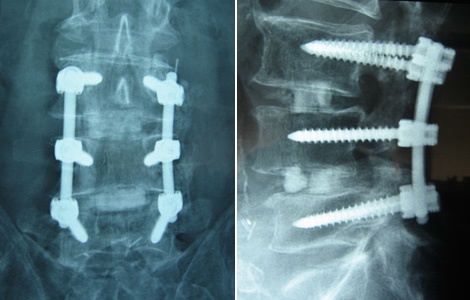I was recently at a seminar of 2 – 300 chiropractors and a surgeon was speaking. The surgeon asked what percentage of our patients end up needing surgery. He guessed 10% and some of the chiropractors in the audience shouted out different numbers. It may be surprising that their numbers were more around 2%. As I thought back on the patients I have seen and the small number that needed surgery, I realized my percentage was also very low.
This is not because I disagree with surgery or withhold patients from receiving surgery when it is needed. I often recommend a more conservative approach, beginning with the less risky option of chiropractic first. But if my examination reveals that chiropractic is not going to help them, I do not hesitate to find the right professional that will. I usually work with surgeons that understand the benefits of trying medications and injections before jumping to surgery. Since they know the risks of surgery and how it is not a 100% guarantee, they will begin with less invasive treatments.
A recent study of workers with low back injuries showed similar findings. It found that it was less likely for a worker to get surgery if they went to a chiropractor first. 42.7% of those that saw a surgeon ended up getting surgery, compared to only 1.5% of those that saw a chiropractor.1
Even with more severe symptoms, when surgery is a possible option, I have used chiropractic to gently treat many patients that have become well without the need of surgery. This is for neck and back pain, knee and shoulder pain, carpal tunnel syndrome, as well as intense numbness and burning pain into the arms and legs. I will often apply spinal disc decompression (also called mechanical traction) for these more severe cases. Read more about that treatment here.
Surgery is an important option when it is needed and it is a miraculous treatment. I fully support surgeons and am continually amazed at the skillful work they do. There are so many treatment options when you are in pain, and we are all ready to help you in whatever way we can. I am glad all practitioners can work together “for the good of the patient” and be the resource you need when you are suffering.
For more information on this topic:
- See last month’s discussion: Do You Think I’ll Need Surgery?
- And our post here: Do you really KNOW you’ll need surgery?
References:
- Keeney B, Fulton-Kehoe D, Turner J, et al. Early predictors of lumbar spine surgery after occupational back injury: results from a prospective study of workers in Washington state. Spine. 2013;38(11):953-964.
